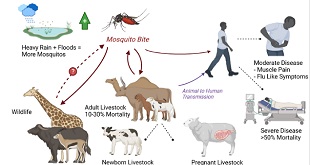Is genocide being redefined to indict Israel?


COMMENT | GEBRT KONSTANTY | There is a raging global debate about whether Israel’s actions in Gaza qualify as genocide. The United Nations Convention on the Prevention and Punishment of the Crime of Genocide defines the offense as “acts committed with intent to destroy, in whole or in part, a national, ethnical, racial or religious group, as such.” The convention then enumerates incriminating acts, starting with “killing members of the group.”
Of course, such acts already constitute distinct crimes, including war crimes and crimes against humanity. What makes them genocidal is the “intent to destroy,” which is easy to allege but difficult to prove in a court of law.
Moreover, the International Court of Justice (ICJ) has ruled that genocidal intent must be “the only inference that could reasonably be drawn from the acts in question.” This high standard of proof is what sets genocide apart from other crimes committed in wartime. The uniquely evil intention is what makes it the “crime of crimes.”
Of all the massacres committed in human history, the academic consensus about instances of known genocide applies to fewer than a dozen cases. Thus, it would be particularly shocking if Israelis – given the role the Shoah (Holocaust) played in their own history – were to join such a mercifully small group of perpetrators.
In this context, expert opinion is very important. Many have been waiting for the International Association of Genocide Scholars (IAGS) to weigh in on the matter, and on September 1, it published a resolution doing so. Endorsed by 86% of IAGS members who decided to cast a vote, the document is unambiguous: “Israel’s policies and actions in Gaza meet the legal definition of genocide.”
But this hardly settles the matter, because the IAGS appears not to have held a debate about the central question of intent. Instead, the resolution defers to the opinion of other institutions and organizations that have taken positions on the issue. It is as if the International Genetics Federation voted to endorse the idea that acquired traits are heritable not by presenting arguments for the questionable claim, but simply by quoting others who already endorse the idea.
This omission becomes more understandable when we learn from Sara Brown, a two-term member of the IAGS’s advisory board, that there was no internal debate about the text. It was simply presented for approval, and, according to the BBC, only 28% of the group’s 500-odd members even participated in the vote. Moreover, while we do not know the identities of those who voted, IAGS does not require academic credentials for membership. Artists, activists, and others can also join.
Even though the resolution was passed by a minority of IAGS members whose academic qualifications are unknown, most media coverage of the document omits these ambiguities, preferring a narrative in which a global community of genocide scholars finds Israel guilty of committing a genocide.
But under the UN definition of genocide, it is all but impossible to reach such a conclusion, and Israel’s critics have admitted as much. For example, in declaring Israel guilty of genocide, Amnesty International concedes that the current definition is “an overly cramped interpretation of international jurisprudence and one that would effectively preclude a finding of genocide in the context of an armed conflict.”
Similarly, the Israeli human-rights group B’Tselem has deemed the legal definition too “narrow.” And the government of Ireland, joining the case that South Africa brought against Israel at the ICJ, says it is “concerned” that a “narrow interpretation of what constitutes genocide” leads to a “culture of impunity in which the protection of civilians is minimized.”
In other words, critics say that if it is not possible to declare Israel guilty of genocide under international law, the definition should be modified to accommodate that charge. Is this not exactly the kind of issue that the relevant academic community should address? Apparently, the IAGS thinks not. Instead, it says that Israel’s “indiscriminate and deliberate attacks against civilians” in Gaza have “killed more than 59,000 adults and children.” But even if one accepts this estimate, it assumes that none of the dead were combatants – as if Hamas did not exist.
The IAGS resolution also claims that the ICJ has found “that it is plausible that Israel is committing genocide in its attack in Gaza.” Yet according to the BBC, “Joan Donoghue, the president of the ICJ at the time of that ruling, said … that this was not what the court had ruled.” Instead, “the purpose of the ruling was to declare that South Africa had a right to bring its case against Israel and that Palestinians had ‘plausible rights to protection from genocide’ – rights which were at a real risk of irreparable damage.”
In other words, what passes as an airtight academic assessment is based in part on provable falsehoods and absurdities. This would be scandalous enough if it was confined to the IAGS. But, sadly, the resolution will probably be accepted as a dispositive expression of informed scholarly opinion.
Were that to happen, the pressure to redefine genocide would grow, with far-reaching implications for any conflict involving preventable civilian casualties. The Allied bombing of German and Japanese cities during World War II would suddenly become genocide, and the war itself could be deemed genocidal by both sides. Meanwhile, recognized cases – from the Armenian genocide (1915-16) and the Holocaust to the Rwanda genocide in 1994 – would lose all specificity, each becoming just another atrocity among many.
That would be the unavoidable price paid for redefining genocide to fit the IAGS resolution. But would accepting its conclusion – one endorsed only by a narrow cohort of its members – deepen our understanding of what constitutes genocide? And is such a price worth paying for unfairly indicting Israel for the crime of all crimes?
*****
www.project-syndicate.org




















































